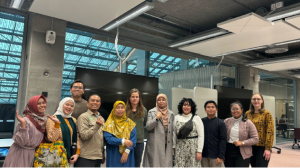 Transformative Education for Advancing Competencies in Planetary Health (TEACH) is a collaborative project between Turku University of Applied Sciences (TUAS, Faculty of Health and Well-being) and Universitas Indonesia (Faculty of Public Health). TEACH Project activities include the development of modules and teaching instruments on learning about planetary health and implementation related to virtual teaching and curriculum collaboration. The aim of the project is to incorporate planetary health into master’s level learning at both FPH UI and TUAS Faculty of Health and Well-being.
Transformative Education for Advancing Competencies in Planetary Health (TEACH) is a collaborative project between Turku University of Applied Sciences (TUAS, Faculty of Health and Well-being) and Universitas Indonesia (Faculty of Public Health). TEACH Project activities include the development of modules and teaching instruments on learning about planetary health and implementation related to virtual teaching and curriculum collaboration. The aim of the project is to incorporate planetary health into master’s level learning at both FPH UI and TUAS Faculty of Health and Well-being.
Prof. Indri Hapsari Susilowati, Assist Prof. Dr. Budi Hartono, and Assist Prof. Dr. Helda along with 6 students from the Master of Public Health Science program (4 students) and Master of Epidemiology students (2 students) participated in the program which was held for 10 days from April 15 – 23, 2024 at TUAS Finland. The TEACH Project itself consists of workshop and field trip activities, which aim to collaborate on joint module development. Both students and lecturers actively participated in workshops using functional methods such as brainstorming, minute rounds, and empathy walks. While the visit agenda was carried out to partner facilities and sites related to planetary health, such as Information and Communications Technology (ICT) Services, Kahmari Circular Economy Learning Facility & Topinoja Waste Management Center, and the University of Turku.
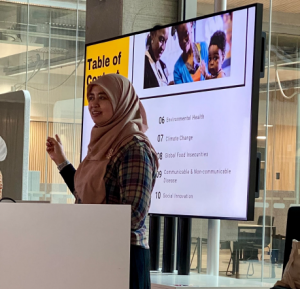
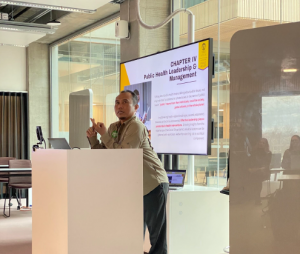
At the workshop, in addition to introducing the profile of FPH UI, lecturers also presented health issues in Indonesia. Prof. Indri Hapsari presented topics “Planetary Health and SDGs” from an Indonesian perspective. “ There are still some gaps between education and implementation of planetary health in the population in Indonesia, as well as the limitations of incorporating this approach into university education,” Prof. Indri explained in her presentation.
Meanwhile, Dr. Budi Hartono delivered presentations on “Environmental Health and Climate Change”. “ At Faculty of Public Health UI, we are closely related to issues concerning air, water and soil. Moreover, environmental health also deals with sanitation issues that cause infectious diseases,” said Dr. Budi Hartono.
Furthermore, material related to “Communicable and Non-Communicable Diseases” was also delivered by Assist Prof. Dr. Helda. Dr. Helda explained how environmental changes are exacerbating infectious diseases such as vector-borne diseases and waterborne pathogens. In addition, environmental factors contribute to non-communicable diseases such as respiratory diseases and cancer.
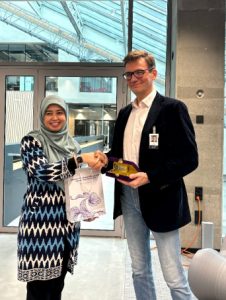 The TEACH Project also bridged the participants to carry out discussions that revolved around the topics of sustainability, equity, and the impact of environmental change on diseases. The topics were important because addressing these challenges requires collaborative efforts, inspiring leadership, and resilient health systems for a healthier and sustainable future.
The TEACH Project also bridged the participants to carry out discussions that revolved around the topics of sustainability, equity, and the impact of environmental change on diseases. The topics were important because addressing these challenges requires collaborative efforts, inspiring leadership, and resilient health systems for a healthier and sustainable future.
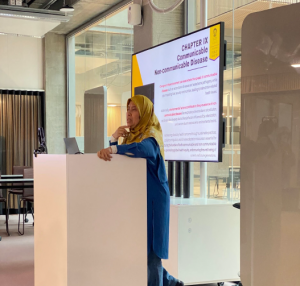
“We hope this program can bring advantages not only to the university, but also to society and the environment at large,” said Vesa Taatila, Rector of Turku University of Applied Sciences in his speech to the TEACH Project participants. (wrk)
